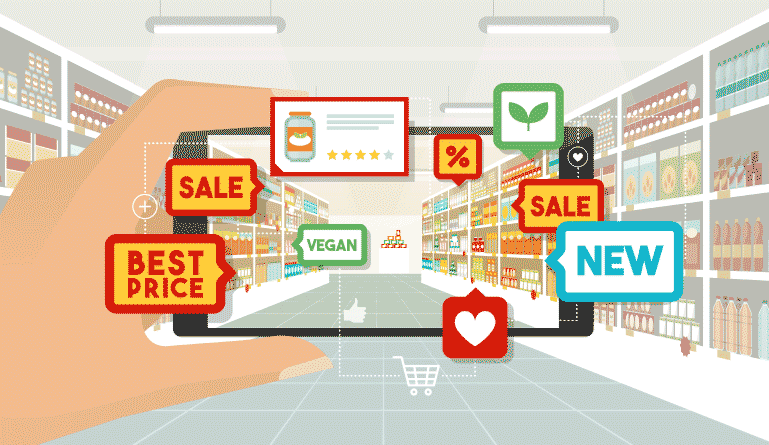Mobile usage is greater now than ever before, for people in both their personal and professional lives. Over 61% of email is opened on smartphones and people spend more than five hours a day on their smartphones. Businesses who don’t think “mobile first” and create ease of use through mobile devices for both employees and customers stand to fall behind.
A mobile enterprise application differs from stand-alone mobile apps, like those used for productivity, such as calendar and contact apps, social media and networking apps like LinkedIn and Instagram, and entertainment apps like gaming platforms, Spotify, or Netflix.
What does the growth of the mobile enterprise application market mean for your business?
According to Techopedia, “mobile enterprise is a broad term that refers to the business practice of using mobile platforms to get core operations done. Nearly any kind of task or process that is accomplished on a mobile device, over a mobile platform, constitutes a mobile enterprise.”
These typically have B2E (business to employee) or B2C (business to consumer) functionality, and some examples include:
- Mobile banking
- Mobile e-Commerce
- Mobile CRM
- Enterprise resource planning
- Manufacturing resource planning
- Enterprise asset management
- Payroll and human resource management system
Employees are no longer tied to their laptops or desktop computers and bound to office desks. The world is increasingly mobile, and that applies to the workforce. Salespeople no longer need to be at their desks to log sales calls and notes – mobile CRM apps can keep them on track. Employees no longer need to wait until Monday to add their PTO request – human resource management systems can be accessed via enterprise mobile apps that give employees more freedom and flexibility.
The growth of the mobile enterprise application market
The Global Mobile Enterprise Application market is estimated to grow 16.2% over the next decade to reach approximately $185.41 billion by 2025. According to PR Newswire, this is due to the “increase in smartphone penetration, enhancement in connectivity and productivity of both employees and organizations, growing demand for real-time information capture, and organizations’ continued focus to make their business processes mobile-ready due to the increase in mobile workforce are some of the driving forces in the market.”
The benefits of enterprise mobile apps are:
- Access and availability: Mobile applications for business give immediate access to business information and enable real-time sharing, communication, and collaboration.
- Insight and analytics: Faster communication needs the data to make it relevant. Mobile analytics and reports, dashboards, and business data help businesses make smarter, faster decisions on the go.
- Connected convenience: As businesses grow and become more complex, it becomes more important for employers to have access to both business data and business employees.
The challenges of the mobile enterprise application market
Of course, growth does not come without challenges. Some companies struggle with:
- Cross-platform support: Not all users, employees or consumers, use the same time of mobile device powered by the same platform. Application developers need to ensure that all users can access the application no matter what kind of device or operating system they’re using.
- Backend integration and management: Mobile applications aren’t standalone programs; they are the mobile direct connection to an enterprise application that is being managed in the “back end” of an organization. This integration and database management can make it more difficult for businesses to offer the convenience of mobile access.
- Privacy and security of data: Mobile application data can be exchanged over public wireless networks, so safety backups and measures have to be built into the application design to ensure that no business information is subject to leaks or theft.
How mobile enterprise application platforms are solving business problems
One of the most significant challenges that MEAP’s are solving for is the issue of different operating software per device. Years ago, software came in one or two versions because offices only (and many still do) offered Windows and Apple desktops or laptops to their employees. With the mix of devices, such as laptops, cell phones, tablets, and even smartwatches, the need for software that can be used by anyone on any operation system and device is crucial, particularly as more companies encourage the “BYOD” or bring your own device policies that enable personal phones and tablets to be used with work software and applications. The app becomes useless if it can’t be accessed by everyone – it fails to offer the flexibility its existence promises.
For companies developing enterprise applications, a “MEAP serves as both a development platform and a management tool for enterprise mobile apps, freeing developers of the task to create separate applications for different operating systems (OSes). This is particularly significant because organizations that support many different devices don’t have to write code for each device’s OS. With a centralized management platform, admins can assign user access to particular applications and allow applications to pull data from specific enterprise databases.”
Businesses who don’t offer mobile enterprise applications risk losing a competitive edge with customers and offering a subpar experience to their employees. The mobile enterprise application market will continue to grow to meet the needs of businesses and employees worldwide.





